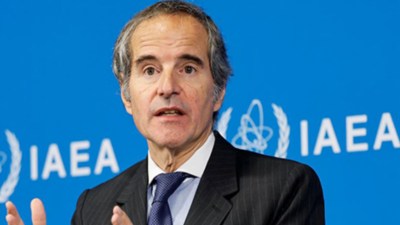It isn’t as if New York is the first remarkable film to synthesize terrorism and friendship. Mani Ratnam’s Dil Se comes to mind immediately where the enigma of the female terrorist played with supine splendour by Manisha Koirala was often invested into scenes of disarming domesticity. New York goes a step further to explore the evolution of terrorism in the context of home-grown emotions such as friendship and betrayal. Director Kabir Khan, discards the exasperating documentary-like directness of his first feature film Kabul Express to transport us into a cinema that needles us into swirling sensations suggesting a close link between cinema and life. The resultant brew is gritty edgy and thought provoking.
New York challenges the existent codes of cinematic conduct, and not by being fashionably unconventional. On the surface, it is an old fashioned film about three students who grow up and grow wise through the politics of our times. Here, we must mention the camaraderie that Kabir creates among his trio of players. What’s it about able casting that lifts a film notches above its destined caliber? We can’t imagine New York being the crucial work that it is without any other players.
John, Katrina and Neil exude the scent of bonhomie. It’s in their secret-society smiles more than the words. The characters speak the language of today without making a strained effort to sound cool. “I’ve just come,” Neil introduces himself to the American-Indian dude-dada on the NY campus after a hug. “With just one hug?” comes the campus hero’s cocky answer. Ha ha. There’s a casual and comforting feeling to the threesome’s bonding, almost like a maturer mellower less in-your-face version of the hips youngsters in Jaane Tu…Ya Jaane Na.
Sameer (John), Maya (Katrina) and Omar (Neil Nitin Mukesh) know life won’t be a campus filled with Christmasy delights for too long. Disaster strikes soon enough. The progression of campus euphoria to the way the grim political reality of America post 9/11 hits our protagonists,is achieved with a refreshing lack of fuss and flamboyance. Kabir Khan is a minimalist movie maker. The emotions that tie the three friends, or the way John, Katrina and their little son try to form a haven away from a world of strife stress and discrimination, shows the filmmaker’s fingers are on the pulse even as his characters’ hands move willy-nilly to the trigger.
It would be easy to designate New York as a well-shot engaging drama on how global terrorism affects the lives of three NRIs in the US. The politics underlining the drama of Kabir Khan’s cinema is so powerfully and persuasively positioned, right down to the pacifist ending when the terrorist ka beta is the school champ in the Land Of Dreams, that you come away from New York feeling chastened by your habitual cynicism about cinema on terrorism and violence.
Here’s a film that cares about the prejudices that have taken over the world. When a small–part actor called Nawazuddin on a camera-within-camera tells Katrina Kaif about the humiliation, torture and indelible wounds that he suffered during detention for suspected terrorism, you are no longer watching a bright sassy film blending terrorism and entertainment. You are watching a slice of life. Make no mistake about that.
My two favourite sequences in the film both feature the unknown Nawazuddin. Watch his face when the American cop frisks Katrina’s character. It’s a moment that defines cultural prejudices and discrimination.
Katrina, indeed comes into her own as an actress of substance, giving her best shot to the last half-hour as a wife of a terrorist trying to keep her moral equilibrium in sync with her husband’s sinking values. From the carefree effervescent campus girl to the anguished wife, Katrina makes the journey look plausible all the way. Neil as the sophomore with stars and stripes in his eyes is fully convincing credible and supportive of the two central performances.
New York is a coming-of-age film for John Abraham. As Sam(eer) the Indian-American dude whose American Dream turns into a nightmare of terrorism and persecution, John creates an intriguing graph for his character. He performs the sequences of incarcerated torture with a naked intensity that rips open wounds that never healed. Whether he’s busy playing the campus rock-star or the guy fitting phone bombs into the FBI headquarters we don’t really know the angels and demons that occupy Sam’s mind. John just flows with the character’s pain of karma with a performance that suggests seamless vigour rather than laboured angst.
Irrfan Khan as the FBI agent who has a point to prove about the Islamic mind-space is wry snappy cynical. His character’s back-projected life suggests an Italian wife who insists on feeding him pastas.
Stereotypical portrayals of the cultural diaspora are fortunately rare in this piece of contemporary art which has plenty of heart, a heart that never overflows in an embarrassing torrent of emotions. Indeed for better or worse, New York is Yashraj Films’ most international product to date. Aseem Mishra’s cinematography and Julius Packiam’s background score aid the narrative’s progression considerably, creating a powerhouse of picture-postcard images which secrete their terrifying subtext with a dormant fluency. The dialogues on terrorism and the isolation and persecution of the average Muslim after 9/11 are brought into play much later. In fact, the word ‘Muslim’ is not mentioned until the second-half when Irrfan gets into the diatribe mode.
What the film could and should’ve avoided is the rounding of the horrific subtexts on terrorism with a rosy all’s-well-with-the-American-dream picture. All in fact is not well with the way Indians and other Asians are treated abroad. New York depicts the end of a dream, American or otherwise, in a language that conveys the sublimated reality of a dream lived in sleep. It’s a fascinating view of friendship, loyalty and politics done in shades that reject garishness and embrace a serene, supple but strong style of narration.
New York is an important film. Not only for its political message. But also because it dares to treat basic emotions in a language that’s still largely alien to our cinema.
Neil Nitin Mukesh recalls the experience of working in New York. “As a career and life-changing experience. New York released sixteen years ago today and it still feels like I was on sets just yesterday. Directed by Kabir khan and produced by Aditya Chopra, New York gave me, what I believe to be one of the most iconic films and characters in my career till date. My character Omar has been etched in the hearts of millions of lovers who identify with his unconditional love for Maya. Even today, a true friend can feel the characters pain for betraying his friend Samir. Tu ne Jo Na Kaha is an anthem for all those who believe in the existence of love and friendship. I still hum that song to myself. Besides bonding with Kabir, Katrina and John, I feel blessed to have shared screen space with the late Irfan Khan sir whom I consider an institute in acting. John Abraham, whom I consider like a big brother even today and of course everyone’s dearest Katrina, without whom I would never have been able to portray Omar the way I could. I’ll forever be grateful to Aditya Chopra and Kabir Khan for giving me this opportunity. Every actor needs that one film in their career that can immortalise them. Without New York in my filmography, I would simply be incomplete.”












